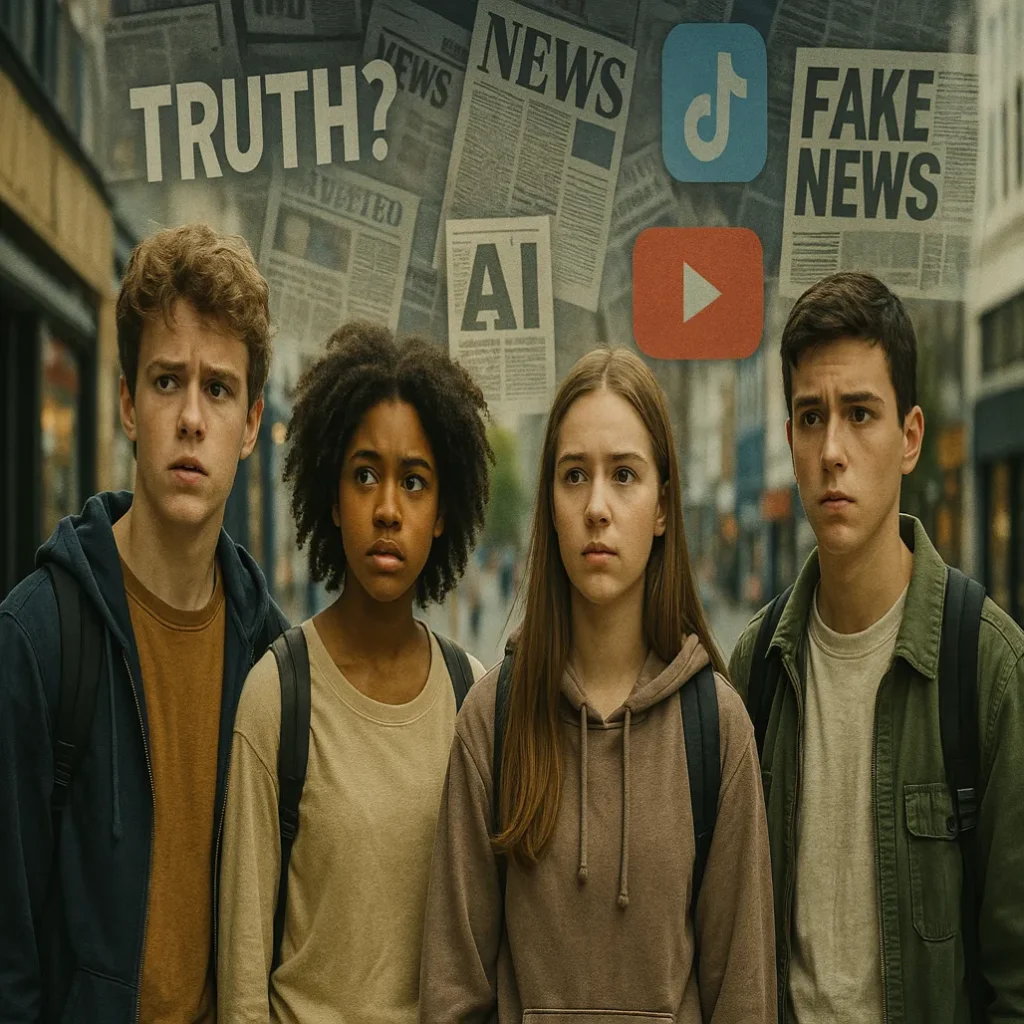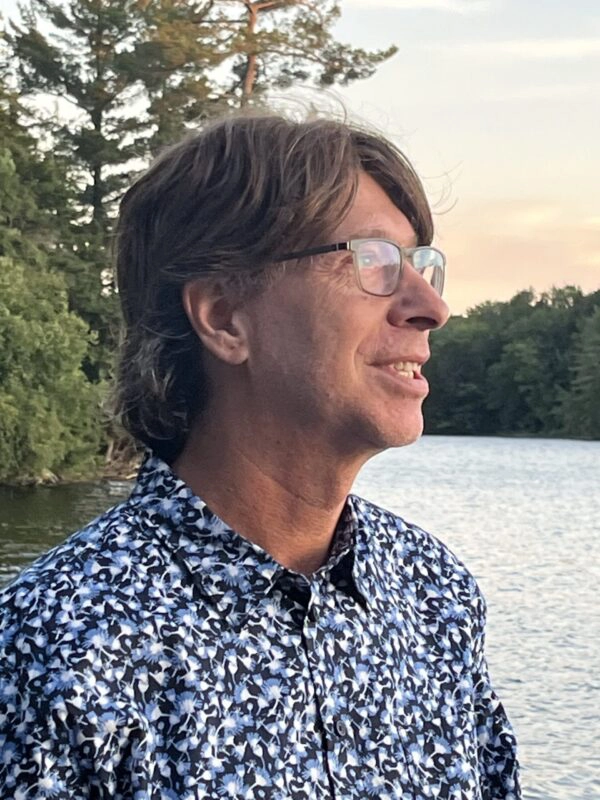In a world flooded with information, misinformation and disinformation, discerning the truth and figuring out who to believe has never been more difficult or important. Indeed, the relationship between figuring out what is true, what you think, who you are, and how you form opinions is interrelated. This intellectual, social and psychological maturation process is a very large challenge for young people due in part to conflicting headlines, divisive opinions, and emotionally charged social media messaging.
At KnowledgeWorks Learning Academy, we believe that education should prepare students not only for school success but also for many other important aspects of life. Life demands the ability to think critically, ask profound questions, and reflect honestly and courageously on one’s own values.
Why It’s So Hard to Know What to Believe
With the rise of social media and constant connectivity, we are surrounded by opinions—many of them loud, persuasive, and emotionally charged. Algorithms often feed us content that confirms our biases, making it harder to hear alternative viewpoints. Even the most well-intentioned people can unknowingly pass along misinformation.
“The greatest enemy of knowledge is not ignorance—it is the illusion of knowledge.”
— Stephen Hawking
In today’s world, it’s easy to feel lost or overwhelmed. But there are tools that can help!
Helping Young Minds Navigate through the Noise
At our academy, we work with students to develop the tools they need to make sense of the world—tools rooted in philosophy, science, psychology, history, diversity and character education. Just as importantly, we take an interdisciplinary approach to learning. That means we don’t just teach students what to think—we guide them in understanding how knowledge is constructed, challenged, and reimagined across different fields of thought.
“Education is not the learning of facts, but the training of the mind to think.”
— Albert Einstein
At KnowledgeWorks Learning Academy, we approach complex questions from multiple perspectives. Whether examining a political issue through the lens of ethics, a historical event through the eyes of opposing sides, or a psychological concept through science and lived experience, we emphasize that truth is not one-dimensional, nor is real learning.
“We all see the world through different lenses—history, ideology, experience. The goal isn’t to erase those lenses, but to become aware of them.”
— Ian Bremmer
Key Strategies We Teach
1. Ask the Right Questions
Rather than rushing to take a side, we encourage students to pause and ask:
- What are the facts?
- Who benefits from this message?
- What voices are missing from this conversation?
- What am I feeling—and how might that shape my thoughts and beliefs?
“The unexamined life is not worth living.”
— Socrates
Curiosity is the first step toward understanding.
2. Explore Diverse Perspectives
Studying history teaches us that what comprises “truth” often depends on who is telling the story. We help students:
- Examine primary sources from different cultures and time periods
- Understand how belief systems are shaped by context
- Recognize that examining moral complexity is not a weakness, but an opportunity to think more deeply about issues and challenges
“Study the past if you would define the future.”
— Confucius
3. Practice Media and Emotional Literacy
We teach students to think critically about:
- The emotional impact of language and images
- How social media shapes our perception of truth
- The difference between persuasion and manipulation
This helps them become more discerning, less reactive, and more thoughtful communicators.
“Between stimulus and response, there is a space. In that space is our power to choose our response.”
— Viktor Frankl
4. Reflect on Values and Identity
Character education isn’t about memorizing a list of virtues. It’s about understanding who you are, what you stand for, and why. Through guided discussion, writing assignments, and mentorship, students explore:
- Core values
- Moral reasoning
- Their own evolving beliefs
“He who has a why to live can bear almost any how.”
— Friedrich Nietzsche
“What lies behind us and what lies before us are tiny matters compared to what lies within us.”
— Ralph Waldo Emerson
It’s not always about finding the “right” answer but developing the courage and clarity to hold a thoughtful one.
Building a Foundation for Life
Truth-seeking is not just an academic exercise. It’s a way of being in the world—with intelligence, integrity, curiosity, and compassion. At KnowledgeWorks, we believe that young people deserve the space and support to figure out what they think, not just in moments of calm, but especially when the world feels chaotic.
“In an age of disinformation, those who ask questions—not just absorb answers—are the ones who shape the future.”
— Ian Bremmer
We don’t give students easy answers.
We give them better questions—and the tools to succeed in all of their endeavours.

